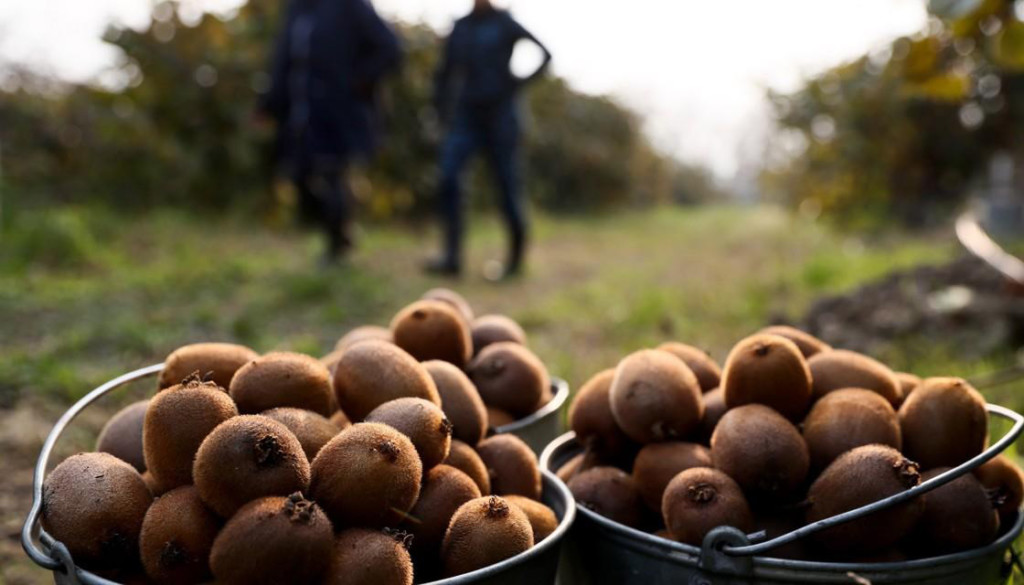How agtech can help remedy horticulture's labour challenge
Taking charge of the family’s New Zealand kiwifruit orchard, was unexpected for Genevieve Griffin-George but led to her developing PICMI, an online platform that links farmworkers and employers – with plans to go global.

Taking charge of the family’s New Zealand kiwifruit orchard, was unexpected for Genevieve Griffin-George but led to her developing PICMI, an online platform that links farmworkers and employers – with plans to go global.
Genevieve Griffin-George landed in agriculture by accident, literally. After studying architecture and spatial design, Genevieve worked in management consultancy. But then her father had a serious tractor accident and she stepped in to run his kiwifruit orchard, near Nelson in New Zealand’s South Island, renowned for it lush landscapes and bountiful produce. It was a pivotal time for the intrepid young New Zealander.
“I never thought about working in ag,” Genevieve said. “I was literally thrown into this industry and now I don’t want to be anywhere else.”
Genevieve grew up and worked overseas and has lived in many countries in Asia, Europe and the Middle East. Managing the kiwifruit orchard, made Genevieve realise how much she loved working outside and watching things grow, and that the challenge she faced with finding seasonal employees was an industry-wide problem.
“I realised pretty quickly that the sign by the front gate wasn’t going to cut it as a way of finding the people we needed,” she said.
Thinking about a better way to find and hire staff, led Genevieve to create PICMI, an online platform that links seasonal agricultural workers and farmers looking for staff.
Now she and two others are focusing their energy on the agrifood startup PICMI and her father is back running the kiwifruit orchard.
“There are so many processes involved in hiring workers the traditional way,” Genevieve said. “On average it takes growers two hours to hire someone, regardless of how long they are going to work. PICMI takes that away and removes the stress. Workers can show they meet the criteria required, do the inductions online, then arrive ready and compliant.
“The way people want to and are able to work has changed. How do we make it easier for people to have an income in this scenario? We have to think about how this works – and I don’t have all the answers.”
The word ‘yet’ hangs in the air when Genevieve said she doesn’t have all the answers. Her focus on solutions, a willingness to work with others and her palpable enthusiasm give confidence that she will find workable answers to a lot of difficult questions facing the agricultural workforce. In fact, her commitment to grassroots problem-solving led to becoming an evokeAG. 2020 Future Young Leader.
“We need to find ways to use tech in agriculture to give time back so farmers can focus on what’s really important to their business,” she said. “PICMI sits at the beginning of the hiring process and makes it really easy to share information into other systems like payroll, time-sheets and planning tools. PICMI gets rid of the busy work and gives time back to focus on people.”
How COVID-19 changed the way farmers find labour

The COVID-19 lockdown provided a surprising opportunity for Genevieve and PICMI. “It’s changed how employers approach jobseekers,” she said. “Everything changed overnight. Farmers couldn’t operate like they had always done. Every face-to-face process was impacted, from signing paperwork right through to inductions. This increased industry’s appetite to experiment and try new things.
RELATED ARTICLE: Space technology, a powerful tool for farmers
“Imagine the paperwork and time of hiring 5,000 people a year. One of our current customers has run 450 people through our system in the past month. Imagine the time-saving. Saving paper doesn’t sound like much, until you look at the amount we are talking about.
“There’s also the travel we will save. People don’t have to turn up in places where there’s no work. They know where to go.”
The sustainability benefits of PICMI go beyond savings in paper and travel.
“There’s always wastage,” Genevieve said. “You can’t control the weather – but with PICMI you can get 500 people to arrive tomorrow if you need them. We can unlock a workforce that you might not otherwise have.”
At present, PICMI is focused on the horticulture industry in New Zealand, which reflects Genevieve’s origins more than anything else. So does Genevieve see it extending beyond NZ’s shores?
“Oh yeah! This is a global problem,” she enthused. “We’re solving it simply and easily. It’s going to affect every farmer in the world if I have anything to do with it.
“We have built the software so that businesses can select the information and criteria they need. PICMI puts farmers back in the driver’s seat and gives them visibility so they can be proactive rather than reactionary.”
RELATED ARTICLE: Supercharging innovation: a new approach to old ways in New Zealand
Genevieve said COVID-19 and the lockdown has helped to highlight how important agriculture is and people are no longer taking it for granted. “I’m really excited about that,” she said. “We need the best minds working in agriculture.”
She wants young people, especially young women, to see agriculture as an exciting industry to get involved in.
“There’s no other industry that has more opportunities. Whatever you want to do, you can start in agriculture.
“I’m passionate about unlocking the potential within the industry and want people to look at agriculture and say, ‘I want to be part of this’.”
Enjoyed this story? Want to learn more about the Asia Pacific region’s innovative agrifood tech ecosystem? Sign up for our newsletter here and receive fresh stories about global leaders, farmers, startups and innovators driving collaborative change.
